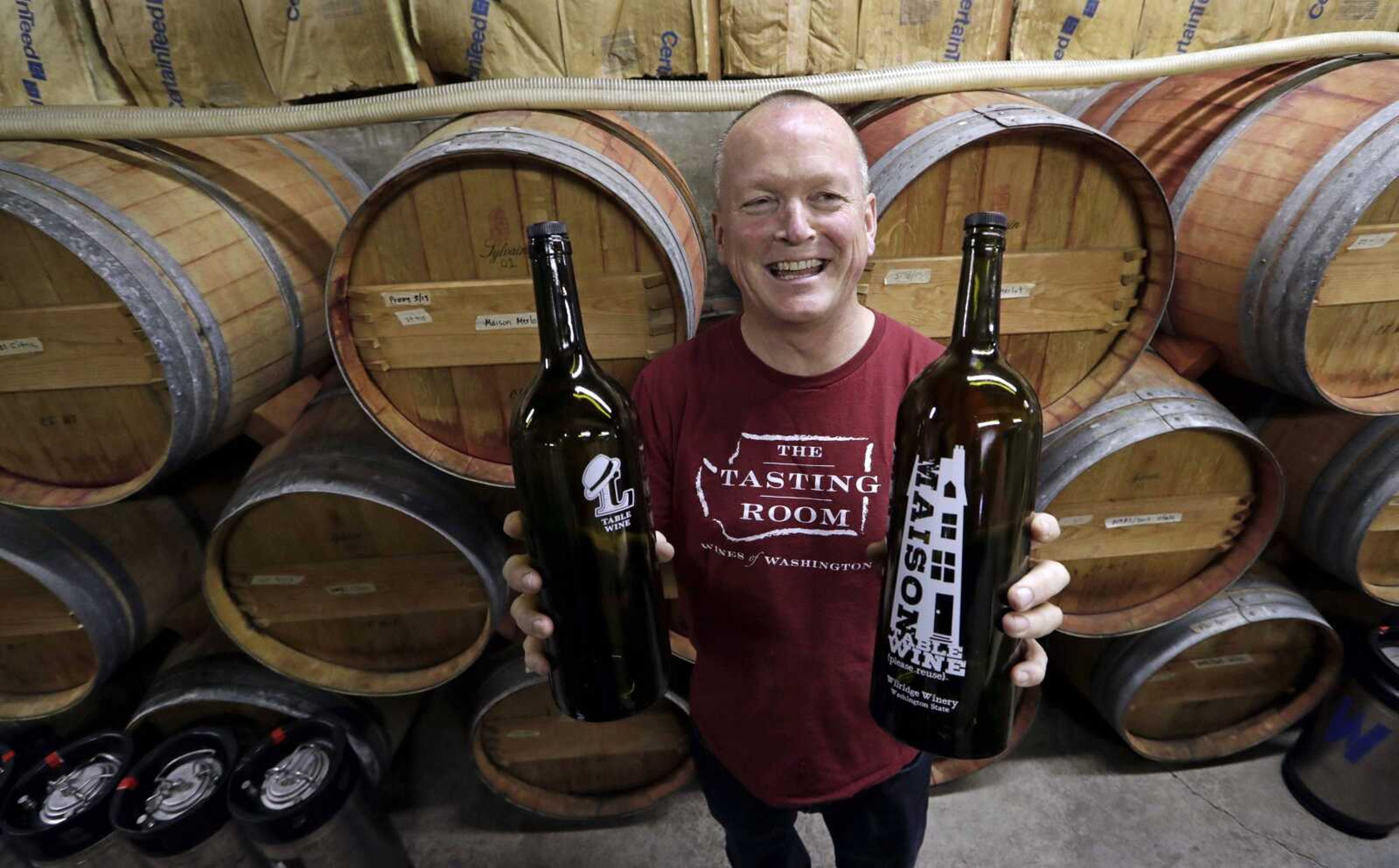Washington state eyes store refills of wine
OLYMPIA, Wash. -- A proposed measure in Washington state would allow wine lovers to fill reusable containers known as growlers from taps at grocery stores, wine boutiques and other places licensed to sell wine in the state. House Bill 1039, sponsored by Democratic Rep. Sharon Wylie, would let businesses already licensed to sell beer or cider for growlers to offer wine for the containers...
OLYMPIA, Wash. -- A proposed measure in Washington state would allow wine lovers to fill reusable containers known as growlers from taps at grocery stores, wine boutiques and other places licensed to sell wine in the state.
House Bill 1039, sponsored by Democratic Rep. Sharon Wylie, would let businesses already licensed to sell beer or cider for growlers to offer wine for the containers.
"It's an additional way to market and appeal to customers," Wylie said. "And being able to safely reuse your bottles is a good thing."
Oregon has a law allowing growler purchases at wineries, but no other states have passed or proposed a bill to extend sales outside wineries, according to Heather Morton, a policy specialist at the National Conference of State Legislatures
Paul Beveridge of Seattle's Wilridge Winery said it's the most eco-friendly way to consume wine without lessening quality.
In addition, he said, consumers get more for less.
"It would be easier, and more convenient for customers to have filling stations outside of my winery," said Beveridge, president of Family Wineries of Washington State, a proponent of the bill.
More and more beer-filling stations have popped up in Seattle grocery stores and brew pubs, where growlers can be refilled with beer from taps.
Wine offered on tap from barrels or other containers is increasingly popular at restaurants and other locations now authorized to sell growlers of beer.
Beveridge said many state laws pertaining to alcohol date to the repeal of Prohibition and are designed to protect existing wineries and distributors from competition.
Currently, the only way to avoid a trip to a winery is to "swap out" a growler at a licensed store. But customers have to drop it off and wait for new growlers to be delivered to replace the old one.
Wylie said some wineries are concerned about giving up control over the bottling process and about protecting their products from oxygen spoilage and other threats to quality.
Anne Baunach, executive director of the Washington State Recycling Association, said growlers aid the environment by eliminating some of the corks, labels and other waste associated with recycling glass.
"Right now if you go into a store and buy a bottle of wine, you consume the wine, and the bottle hopefully goes into a recycling container, but for many people, it would go into a landfill," she said.
The Washington Wine Institute, the legislative arm of Washington's wine industry, declined comment.
Connect with the Southeast Missourian Newsroom:
For corrections to this story or other insights for the editor, click here. To submit a letter to the editor, click here. To learn about the Southeast Missourian’s AI Policy, click here.









